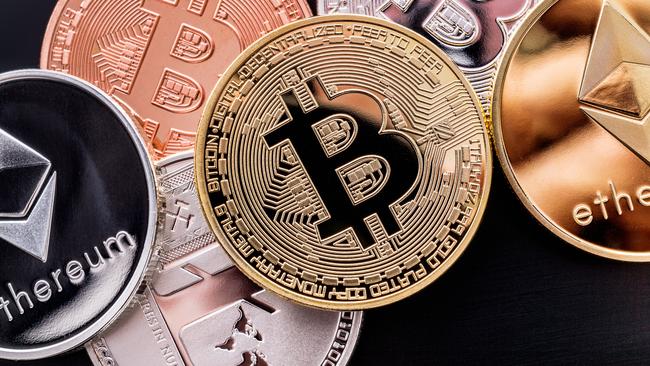When it comes to investing, follow the golden rule
The price of gold may be on the rise but it’s not quite as shiny as it seems. When it comes to long-term gain, it pays to follow the golden rule — only invest in things that regularly put money back in your pocket, writes the Barefoot Investor.
Barefoot Investor
Don't miss out on the headlines from Barefoot Investor. Followed categories will be added to My News.
Uh-oh.
I’ve caused a fight with Jimmy and his missus.
All the poor bloke wants to do is to buy his lovely wife some gold … but it turns out she’s not having a bar of it.
Take it away, Jimmy ...
Hi Scott,
I am old (71), and not a very bright bugger. I only know one thing: that my wife drives me up the wall because she regards you as her financial guru. I have tried to convince her that gold is a safe and profitable investment. She does not believe me, as you apparently take the Warren Buffett view that gold is not a good investment. Have you changed your opinion as the price of gold keeps skyrocketing daily?
Awesome question, Jimmy!
Yes, you are right, I’ve previously written that I don’t invest in gold, and since then the price has risen spectacularly.
Yes, the price could go much higher as the boom takes off and speculators chase higher prices.
So to your question: have I changed my opinion?
Not at all.
Let me explain:
The possibilities for investing your money can be overwhelming.
There are more fads in finance than there are in fashion, and there’s always something more exciting to invest in: Bitcoin, shares, bonds, infrastructure, private equity — and of course gold and other precious metals.
So, I’ve come up with a simple, time-tested rule for deciding where to invest my money:
I only invest in things that regularly put money back in my pocket.
Chief of which are companies that pay dividends and properties that generate rent.
And that’s the rub: gold doesn’t generate any income. Which means that the only way you can make money is by hoping the price goes up, and then selling.
Yet that’s not how I invest. I actually don’t focus too much on the price of my shares, because I know that share prices can — and often do — move around quite dramatically in the short term.
So what do I focus on?
The dividends that are sent to my bank account four times a year.
And, over the long term, owning a portfolio of businesses is the best way to not only safeguard your wealth but grow your income faster than prices rise.
A study by Wharton finance Professor Jeremy Siegal found that if you had invested $1 in gold in 1802 it would be worth (approximately) $3 today. Yet if you’d invested that $1 in the share market in 1802 it would be worth $1,033,487 today.
That’s not to say that gold isn’t having an amazing run: it’s up 80 per cent since its lows of 2015.
How long will it continue?
I have no idea — and no-one else knows either.
But I think that’s the wrong question to ask.
Here are three better questions for you and your wife to ask yourselves:
Firstly, are you buying gold because you’ve got FOMO from watching it go up each day?
Secondly, you’re 71, mate — where are you getting your income to pay for things from?
And, finally, what would you do if gold went down 30 per cent? Would you start panicking and sell at a loss?
If I watched my shares go down 30 per cent (and I did, a few months ago!) I’d grin and bear it, knowing that my dividends were still rolling in.
Tread Your Own Path!

READERS WRITE
I USED MY MOJO TO BUY A $10,800 HANDBAG
ELISHA WRITES: I am a long-time Barefooter and, overall, have made money decisions I think you would be happy with: I have a good job ($110,000 a year), have paid off my bad debts, have started maxing out my super, own my car, pay extra on my mortgage, and have started a share portfolio.
Most importantly, I have three months of Mojo — until the day when I walked into a Chanel store and bought a flap bag for $10,800 (my 38th birthday present to myself).
I’m giddy with happiness and anxiety all at once. This is a classic bag I will have for life.
Chanel raises their prices each year (it cost $6000 five years ago), so I will never lose money on resale.
Yet I also feel sick as it is an enormous amount of money — am I insane?
BAREFOOT REPLIES: So I learned something this week: handbags are an investment.
In fact, research from Knight Frank found that, over the past decade, handbags have more than doubled in value.
Well, not every handbag. (Liz’s is like a lucky dip to another world: you can pull out half-eaten crumbly cruskits, a hairy hairclip, a Wiggles concert ticket from 2018, but never the ringing mobile phone that she’s desperately searching for.)
Elisha, you seem to have worked hard to get your financial life in good shape. And if the bag makes you “giddy with happiness”, well, that sounds like a good purchase to me. You may as well enjoy it!
The only thing I’d say is that you raided the wrong bucket: it should have come from your “Smile” bucket (the savings account for longer term purchases that will put a smile on your dial).
Having a well-stocked Mojo bucket is not nearly as flashy as a Chanel bag, but it will give you the inner confidence to face any financial fires coming your way.
WHAT’S A LANDLORD TO DO?
GARY WRITES: My wife and I live in regional Australia, earning good dough. Our problem is our rental in Brisbane. Our tenants (no problem up to this point) have been stood down due to COVID.
He is a pilot and the main income-earner for his family of six. For the past three months we have discounted their rent by 50 per cent.
They have just come back requesting a further discount period because he is still on stand-down.
Shouldn’t they have their finances sorted so that my wife and I are not subsidising their lifestyle? Or do I show a level of compassion and continue with discounted rent on the basis that some rent is better than zero?
BAREFOOT REPLIES: You seem like a good bloke.
Many landlords haven’t been as generous as you, judging by a report out this week from Better Renting which found that fewer than 10 per cent of tenants who asked for rental relief received a satisfactory discount.
Yet, if I were you, I wouldn’t simply approve their request for a further discount period.
Instead I’d write to them explaining that the fairest thing you can do is give their family time to make some tough financial decisions.
Nominate a certain date you’re willing to give them to make that decision, and, importantly, spell out the amount that this will cost your family. At that date they need to come to you with an acceptable offer, or move out.

THE 12-YEAR-OLD MINER
BEC WRITES: My 12-year-old son wants to become a Bitcoin miner.
He wants to purchase a special device for $120 and believes he will earn about $30 a day.
We have researched online and based on the power consumption of the unit, he will be lucky to make even $1 a day, as the difficulty level is extremely high.
What is your opinion of Bitcoin mining?
Is it worth the effort or expense? I am more worried about the risk of the house burning down or having our computers hacked.
BAREFOOT REPLIES: A dollar a day is maybe on the high side … however if my kid was more interested in Bitcoin than, say, Fortnite, I’d be mining that hobby for everything it’s worth.
So double down on antivirus software, keep a fire extinguisher at the ready, and HODL away!
Got a money question? barefootinvestor.com and #askbarefoot
Scott Pape is an independent, community-based financial counsellor. Information and opinions provided in this column are general in nature and have been prepared for educational purposes only. Always seek personal financial advice tailored to your specific needs before making financial and investment decisions.
The Barefoot Investor for Families: The Only Kids’ Money Guide You’ll Ever Need (HarperCollins)RRP $29.99
Originally published as When it comes to investing, follow the golden rule
